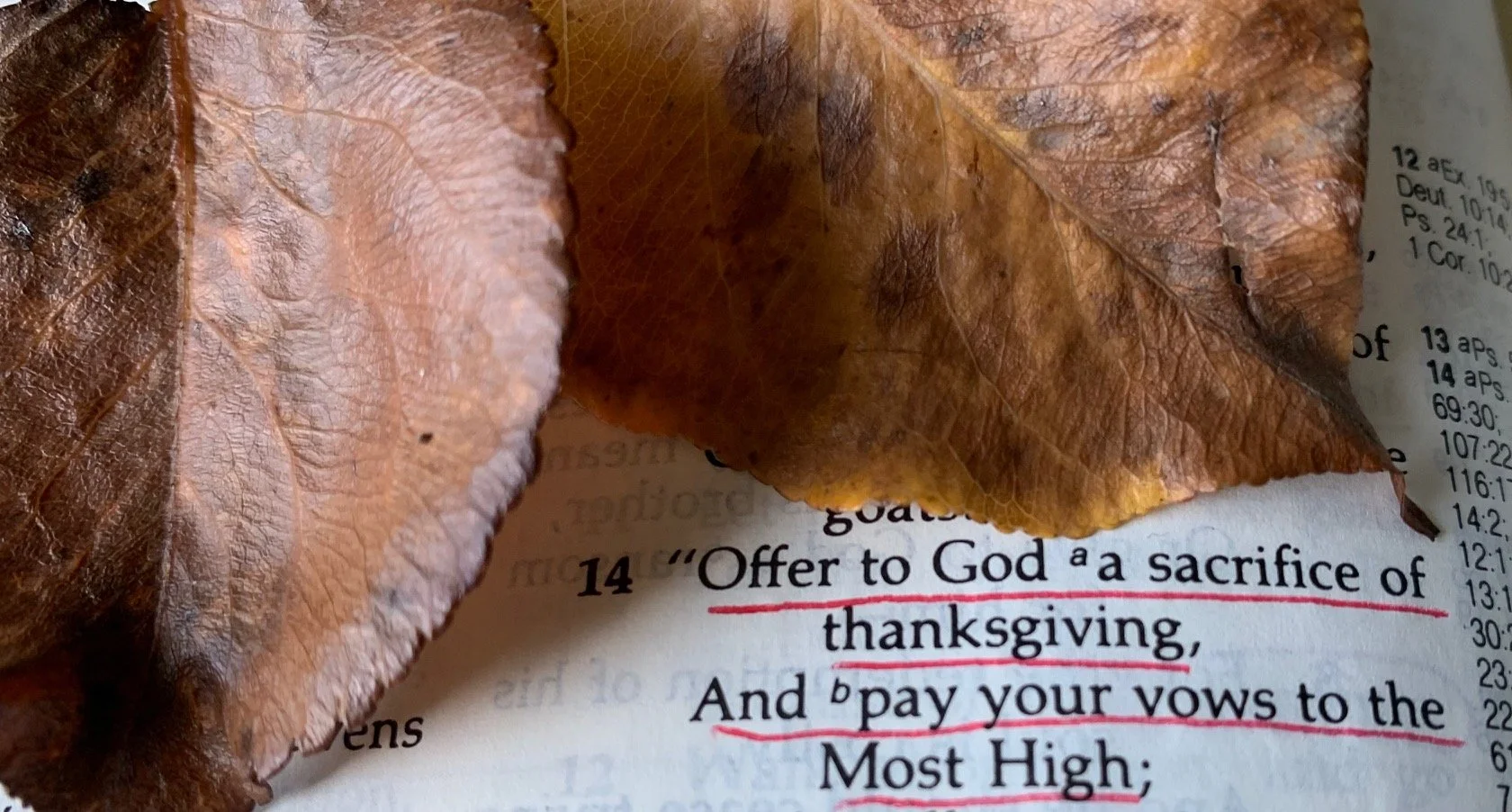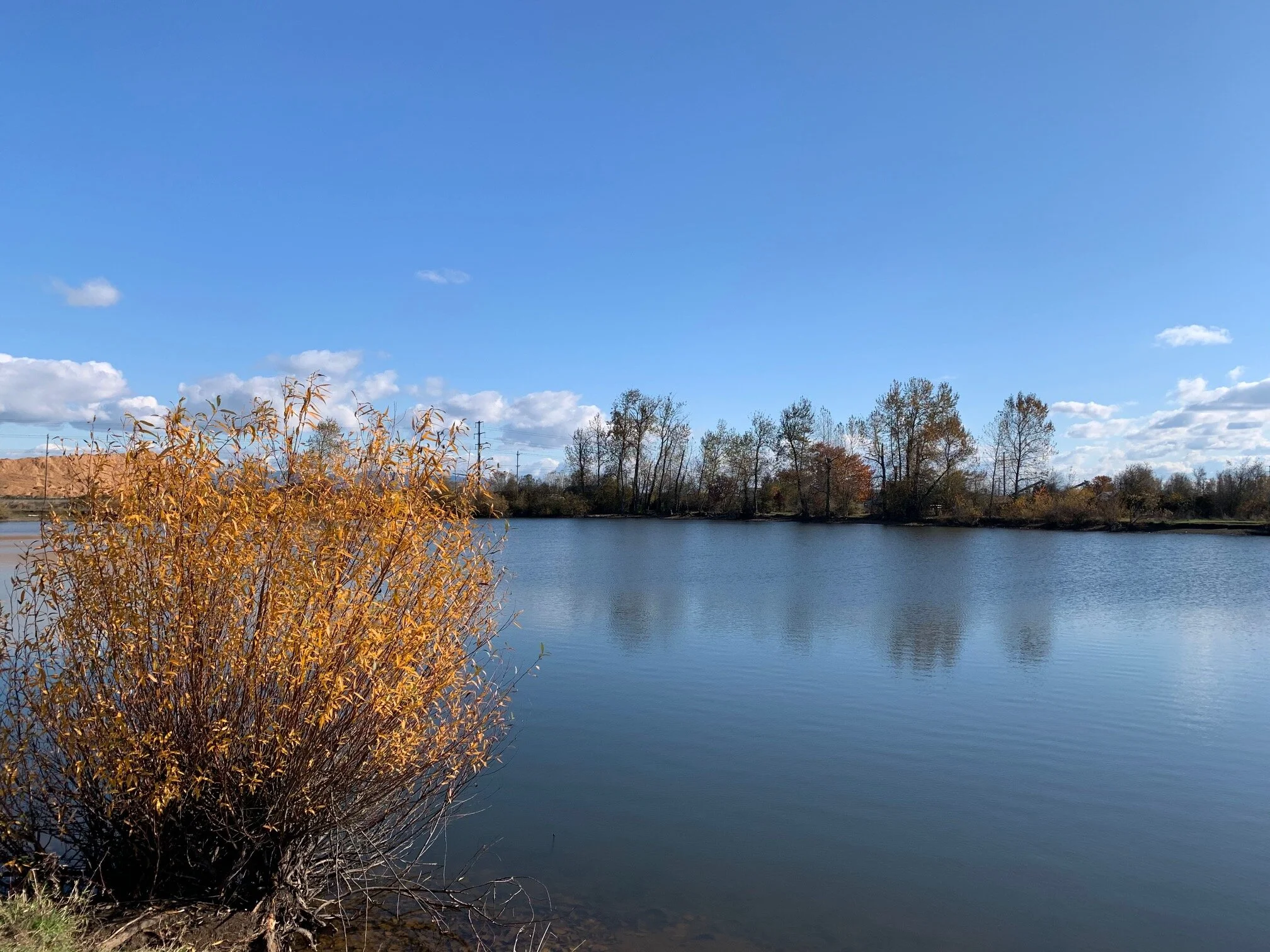Cling
As we enter Holy Week and turn our attention toward the work that Jesus accomplished at the cross, it seemed fitting to read Psalm 22, perhaps the most well-known of all the Messianic psalms. The psalm begins with the words uttered by the Lord in his final moments on the cross. These words were the cry of His heart, filled with the extreme physical and emotional pain He felt at the separation from His Father as He bore the sins of the world.
David penned these words prior to the invention of crucifixion by the Romans. While he was most likely unaware of their prophetic nature, it is clear that he was experiencing an extreme trial of his own. In the first two verses, we read of his anguish at feeling forsaken by the Lord. He cries out for Him day and night yet receives no answer, and feels helplessness and despair in his circumstances.
It was the word “yet” at the beginning of verse three that caught my attention. In spite of the painful swirl of emotions, David remembered that God is holy and enthroned upon the praises of His people. He remembered that those loved ones who had gone before him in life had trusted in the Lord, and He faithfully delivered them from their troubles.
Matthew Henry says in his commentary on this psalm,
“When we are lamenting God’s withdrawings, yet still we must call Him our God, and continue to call upon Him as ours. When we want the faith of assurance we must live by the faith of adherence.” However it be, yet God is good, and He is mine; ‘though He slay me, yet I trust in Him; though He does not answer me immediately, I will continue praying and waiting; though He be silent, I will not be silent.’”
Embedded in this quote are the words of Job, a man who suffered unimaginable pain and loss over the course of his life. Jacob wrestled with God. Genesis 32:24-26 says, “Then Jacob was left alone, and a man wrestled with him until daybreak. And when he saw that he had not prevailed against him, he touched the socket of his thigh; so the socket of Jacob’s thigh was dislocated while he wrestled with him. Then he said, “Let me go, for the dawn is breaking.” But he said, “I will not let you go unless you bless me.” This wrestling match happened over the course of an entire night, and Jacob continued to wrestle with a dislocated hip! Even while in pain, he fought for understanding and clung on for a blessing.
As I read this psalm and pondered what it means to have a faith of adherence, I got a mental image of a box of saran wrap in my mind. It is in those dark times of trial when we feel abandoned and helpless that we run to the Lord for assurance. We cry out, “Are you really there? Do you see me in this mess? Is this going to turn out okay?” While there may not be much we can do to alter the present circumstances, we can follow David’s example.
Remember and praise Him for His attributes.
Remember and praise Him for His past acts of faithfulness.
Remember and praise Him for His promises.
The way to have assurance in the midst of a trial is to cling to Him.
“You shall follow the Lord your God and fear Him; and you shall keep His commandments, listen to His voice, serve Him, and cling to Him.” (Deut. 13:4)
“I love those who love me; and those who diligently seek me will find me.” (Proverbs 8:17)
“Draw near to God, and He will draw near to you.” (James 4:8a)
I don’t think I’ll ever look at a box of cling wrap the same way again.
A Sacrifice of Thanksgiving
There are those who will sit around a beautiful table laden with a delicious assortment of food tomorrow. Surrounded by family (and maybe a few friends) in a warm comfortable home, they will enjoy a special meal together. Perhaps the conversation will shift toward what they are all thankful for. Children at the table may chime in with the name of their pet or favorite toy, while the adults will speak of things like good health, a loving family, or the promotion they just received at work.
There are also those who will not be sitting around a table with loved ones. Perhaps they will eat, but the meal will be small and like any other day of the week. Life is a struggle right now, and the answer to “What are you thankful for?” doesn’t come easily. Perhaps it has been this way for a long, long time. Battling loneliness and depression, the emotional fog feels heavy, and words of thanksgiving are thick on a hesitant tongue.
The other day I was reading in Psalm 50 and came to verse 14 which says, “Offer to God a sacrifice of thanksgiving, and pay your vows to the Most High.” It was the phrase “sacrifice of thanksgiving” that caught my attention. We often think of things that we are thankful for out of our abundance. A sacrifice is costly. In the Old Testament, God instructed His people regarding acceptable sacrifices. Most often sacrifices were either animals or grain, both of which required effort, time, and money to produce, and especially with animal sacrifice, it was messy and must have felt a bit traumatic to witness. Old Testament sacrifices were meant to be a picture of what was to a come…the arrival of a Messiah, the perfect Lamb of God, who would die a messy and traumatic death because of His great love for His people.
We don’t sacrifice animals today (and I’m very thankful for that!), so what does it mean for us to offer a sacrifice of thanksgiving to the Lord?
Perhaps we could start with offering up our personal desires (or will.) We can lay the animal of “This isn’t how my life was supposed to go” on the altar and declare thanksgiving over the fact that He is sovereign and His ways are higher than our ways (Isaiah 55:9). We could bring the bundle of grain marked “I deserve better than this” and declare thanksgiving over the fact that our Savior was despised and rejected (Isaiah 53:3), endured the cross out of incomprehensible love for us (Hebrews 12:2), and can relate to us in our weakness (Hebrews 4:15.) We can bring our jar of loneliness to His altar and lay it at His feet with a thankful heart that rejoices in the fact that He will never leave or forsake us (Hebrews 13:5), and will be with us always, even to the end of the age (Matthew 28:20).
Fear is an animal that frequently rears its ugly head. We can lay the animal of anxiety on the altar, and slay it with thankful words that declare faith in a God who consoles us (Psalm 94:19), helps and strengthens us (Isaiah 41:10), and grants a peace that passes all understanding when we pray and pour out our hearts before Him (Philippians 4:6-7). Perhaps we fear the future and wonder if our needs will be met. We can offer that up and remember with a thankful heart that He knows everything that we need (Matthew 6:32) and is able to do far more abundantly than we can ask or think (Ephesians 3:20).
As I ponder the concept of sacrificial thanksgiving, it makes me uncomfortable…and perhaps that is a good thing. It reminds me that I am but dust, weak and selfish…daily (and sometimes by the hour or minute) in desperate need of His grace and mercy. Just as the blood was poured out in Old Testament times, it is messy and uncomfortable to pour ourselves out before the Lord. It requires humility and vulnerability, and therefore a sacrifice of our pride and misguided sense of self sufficiency. May I always remember that He poured out Himself to death so that He could intercede for me before the throne. (Isaiah 53:12)
He saved me….out of His abundant mercy (Titus 3:5)
He forgives me…out of His abundant faithfulness (1 John 1:9)
He sustains me…out of His abundant riches (Philippians 4:19)
He loves me…out of His abundant love (Ephesians 2:4)
I have the hope of eternal life…because of His abundant grace (Titus 3:7)
“To You I shall offer a sacrifice of thanksgiving, and call upon the name of the Lord.” (Psalm 116:17)
Comforting the Afflicted
There is a local pond and archery range about five miles from my home. The pond is regularly stocked with fish and many people like to go there on any given afternoon to fish, or have a picnic lunch, or practice their archery skills. Several months ago, my daughter went to the park to spend some time in the sun and enjoy the peaceful setting. It is not uncommon to see flocks of ducks and geese gathered at the water’s edge. As she was observing the geese, she was greatly dismayed by what she saw and took a video. When she returned home from the pond, I noticed that she was quieter than usual. Several hours later she came and showed me the video. I observed the geese milling around the water’s edge, drinking water and looking for breadcrumbs.
Then I saw it…
Photo by Noelle Nevue
…and my heart broke.
My first reaction was shock and dismay, and immediate compassion for this goose. My daughter and I both deeply felt the emotional strain of trying to balance the knowledge of how serious the situation was but realizing that this was a wild animal and there really wasn’t much we could do to intervene and offer aid.
My second thought was, “I know people in my life right now who would look at the picture of this goose and say they could relate to it.” They walk amongst their family and friends and within society itself, trying to live their lives as best as they can. They go to work and the grocery store and act like everything is okay, but metaphorically speaking, life has shot an arrow straight through their heart. Whatever the circumstance, it wasn’t a “death blow,” but it was a serious wound…one that lingers, and the pain and discomfort is a constant reminder. For those who have eyes to see, it is an obvious wound in need of compassion and attention.
Lately, it seems like life as we have always known it is coming apart at the seams. The fabric of society is being stretched and frayed at the edges. We face many issues, both individually and as a nation, and we have strong opinions and are passionate about our beliefs. Let us remember that as believers, we are called to be in the world, but not of the world. Our opinions matter, but as children of God our purpose is to bring the light and love of God to those around us, and this is a call for sacrificial love. In this current climate of isolation and screens, it is easy to forget that we are dealing with people – people made in the image of God, whose souls are often hurting and in need of comfort, even if our opinions and political viewpoints differ.
We serve a God who both saves and comforts His people. I recently made a list of the many different ways in which God comforts us. The list is by no means exhaustive, but here are a few highlights:
He hears our cry (Psalm 116:1)
He meets our needs (Philippians 4:13)
He draws near (James 4:8a)
He has compassion (Psalm 72:13)
He sympathizes (Hebrews 4:15)
He offers rest (Matthew 11:28)
He helps us (Psalm 46:1)
He loves us (Ephesians 5:2)
All of these attributes are relational. He is the model by which we are to live our lives.
“Therefore be imitators of God, as beloved children; and walk in love, just as Christ also loved you, and gave Himself up for us, an offering and a sacrifice to God as a fragrant aroma.” (Ephesians 5:1-2)
“Beloved, if God so loved us, we also ought to love one another.” (1 John 4:11)
As the world becomes a more polarized place in which to live, may we be a people known for love. May we have eyes to see those around us who are hurting and respond with love and comfort. Because we have experienced His great love, mercy and grace in our own afflictions, He instructs us to reach out to those around us by drawing near, having compassion, loving and meeting needs as He leads.
“Blessed be the God and Father of our Lord Jesus Christ, the Father of mercies and God of all comfort; who comforts us in all our affliction so that we may be able to comfort those who are in any affliction with the comfort with which we ourselves are comforted by God. For just as the sufferings of Christ are ours in abundance, so also our comfort is abundant through Christ.” (2 Cor. 1:3-5)
His supply of comfort is abundant, and He “is able to do exceedingly abundantly beyond all that we ask or think according to the power that works within us, to Him be the glory in the church and in Christ Jesus to all generations forever and ever. Amen.” (Ephesians 3:20-21)







